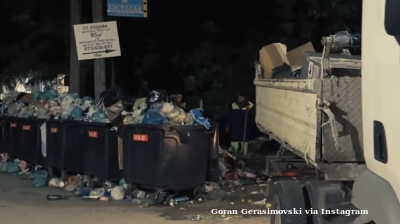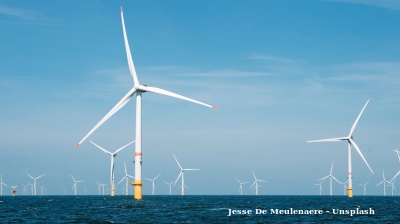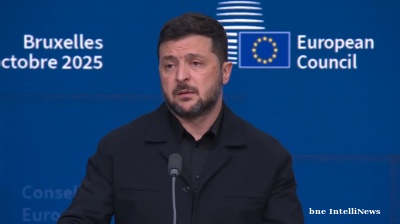The Trump administration has also moved to fast-track seabed mining in international waters following an executive order issued in April by President Donald Trump, bypassing multilateral regulations in what the administration has described as a “gold rush” aimed at countering “China’s growing influence.”
The decision was widely criticised on July 28 during a meeting of the International Seabed Authority (ISA) in Kingston, Jamaica. The consequences for deep-sea mining have not yet been well studied and scientists fear such extraction could do irreparable damage to the ecosystem, which is already under pressure from rising sea temperatures.
The decision to allow the questionable deep-sea mining comes as the Trump administration also guts America’s commitment to fighting climate change by closing down the Environmental Protection Agency (EPA) and nixing the legal basis on which it is empowered to regulate emissions.
The US government is ignoring these fears as it scours the global for alternative sources of critical minerals and rare earth metals (REMs), the supply of which is currently almost completely controlled by China.
“It is outrageous that the US side is ignoring the strong opposition of the international community and pushing forward unilateralist hegemonic acts,” said Wenting Zhao, China’s representative to the 169-member ISA, the United Nations-affiliated body responsible for drafting rules to govern mining on the global seabed, Bloomberg reports.
China, which leads the global supply chain for critical minerals, is preparing to conduct ISA-authorised trials of two seabed mining machines in the Pacific Ocean within the next year.
The push for US seabed mining has been championed by The Metals Company (TMC), a Canadian-registered firm that has lobbied the White House to secure access to critical metals free of Chinese influence. TMC has argued that polymetallic nodules – black mineral-rich rocks covering vast areas of the Pacific Ocean floor – hold the planet’s largest untapped reserves of cobalt and nickel.
In response to Trump’s order, TMC’s US subsidiary submitted the world’s first application to mine the seabed in international waters, including zones already licensed to the company by the ISA. Delegates at the ISA meeting on Monday also commissioned a report on seabed miners potentially in breach of their contracts, a move widely interpreted as targeting TMC and other firms now seeking US licences.
The sudden acceleration has attracted interest from new entrants. Impossible Metals, a Silicon Valley-based startup, has applied for a US licence to explore and potentially mine nodules off American Samoa, and aims to raise $1bn. Meanwhile, a senior executive at Lockheed Martin told the Financial Times on July 14 that the company is in discussions to allow seabed miners access to ISA-licensed zones in the Pacific it holds via the US government.
However, the industry faces steep technical and economic obstacles. TMC has projected that it could begin mining within a year of securing approval, but extracting nodules from depths of 4 km remains technologically unproven at scale. Questions also persist over the economic feasibility of refining the minerals amid volatile prices and emerging battery technologies that do not rely on nodule-based metals.
The US currently lacks industrial capacity to process these materials, and developing refining capabilities in countries outside China could take years. Several countries with key roles in TMC’s supply chain are among those within the ISA opposing unilateral mining.
Japan’s Pacific Metals Company, which had planned to process nodules for TMC, has told investors it would only “launch operations once the international rules are finalised.”
bneGREEN

The Arctic and Antarctica record "off the charts" heat as polar warming accelerates
Parts of both the Arctic and Antarctic have experienced historically high temperatures in recent weeks, with weather stations in East Antarctica recording record-breaking warmth for the month of October, alarming climate scientists.

Giant glacier chunk breaks away in Tajikistan, mountain villages put on alert
Situation serves as reminder that climate crisis threatens to wreak havoc in Central Asian country.

Singapore’s green pivot – headline grabbing but still limited
Forays into offshore wind via regional cooperation with neighbours, and forward-looking bets on hydrogen and low-carbon fuels are making headlines, but the scale required to wean a heavily gas-dependent system off fossil fuels is still daunting.

North Macedonia's Skopje tackles mounting waste and rodent crisis
Locals say the problems in Skopje's Centar municipality worsened during the local election period when political campaigning took precedence over maintenance.



.jpg)
